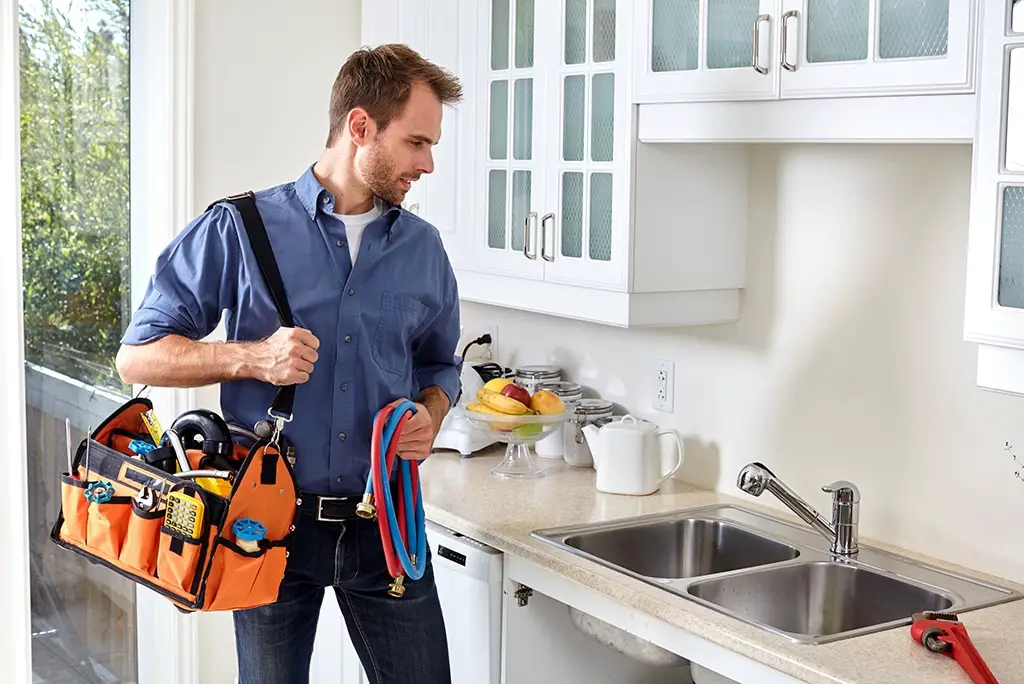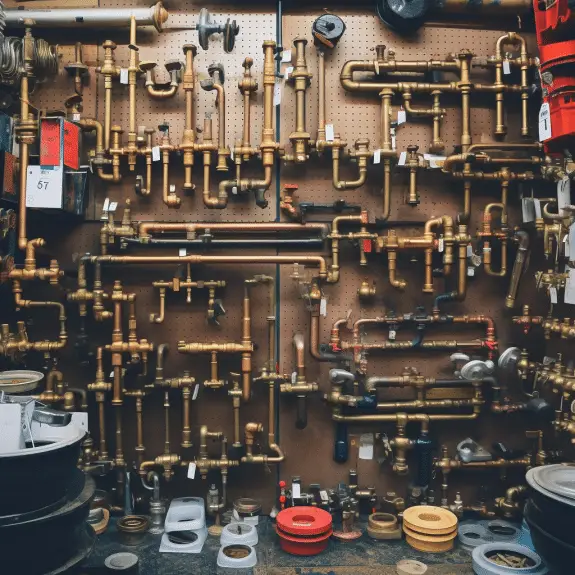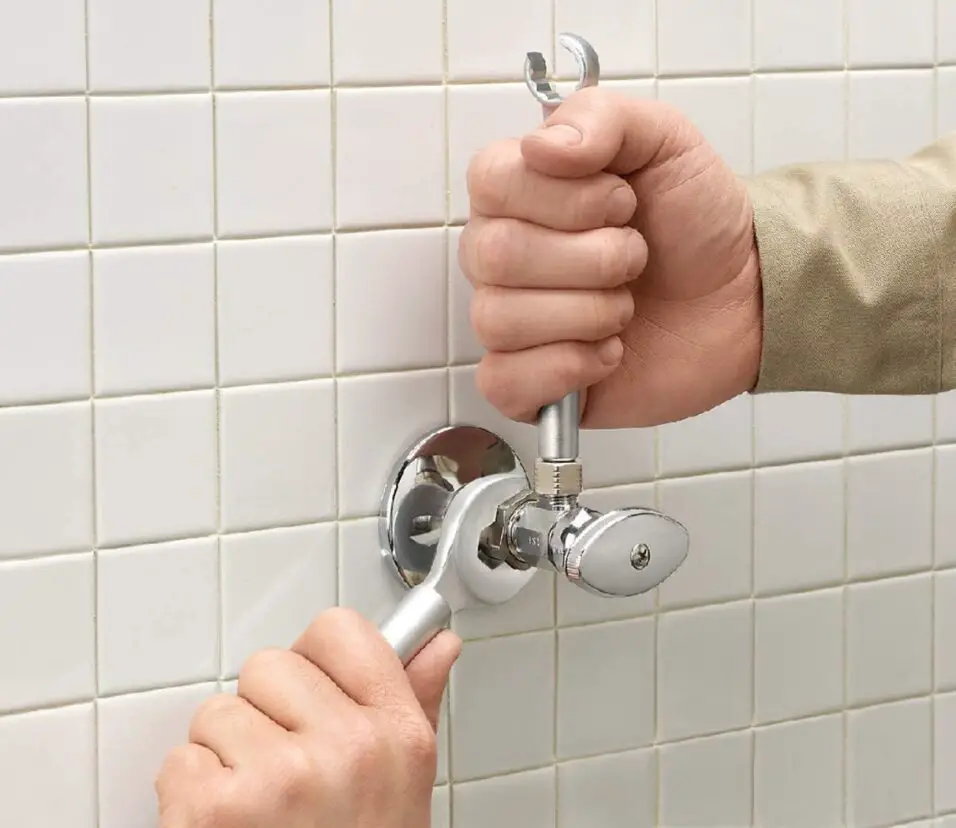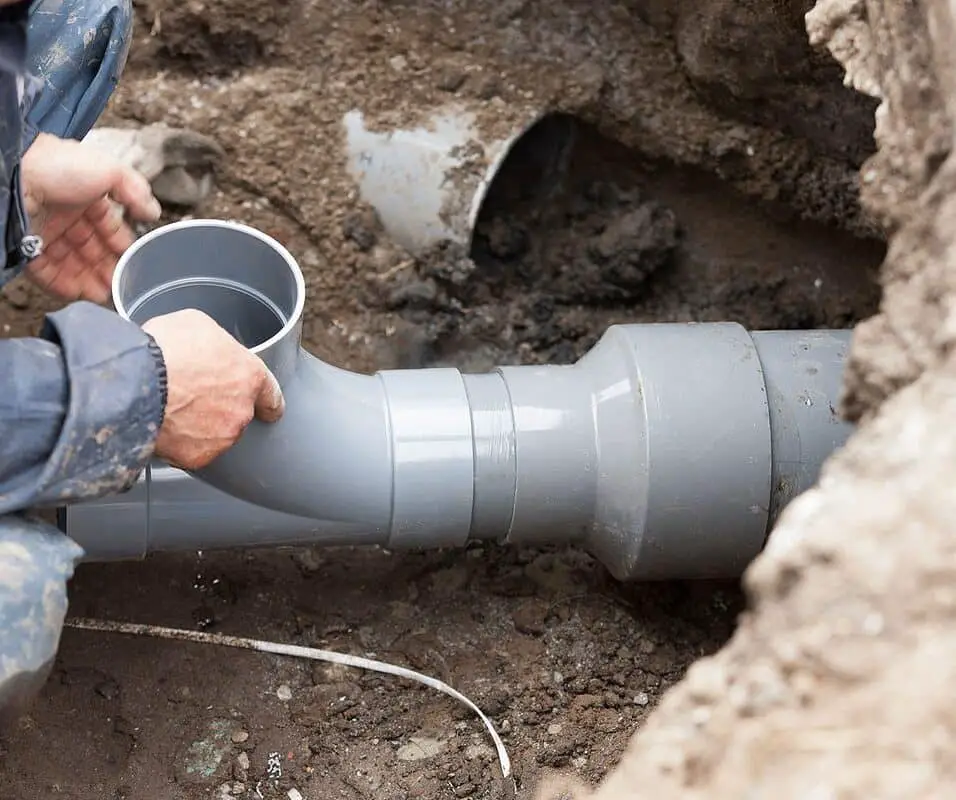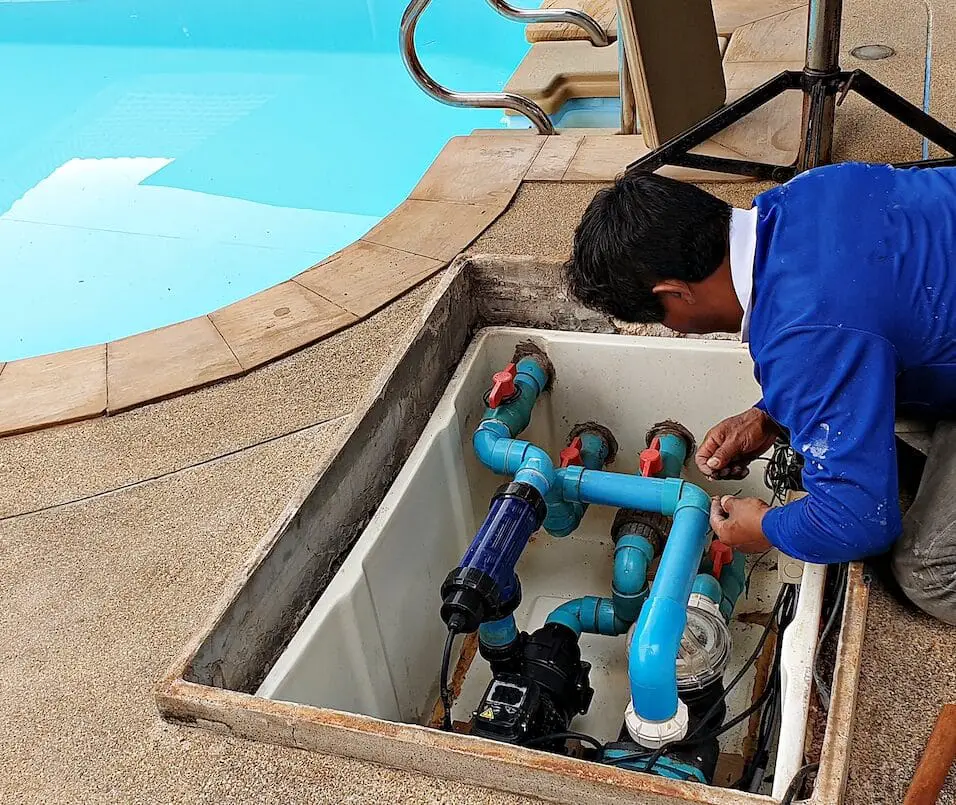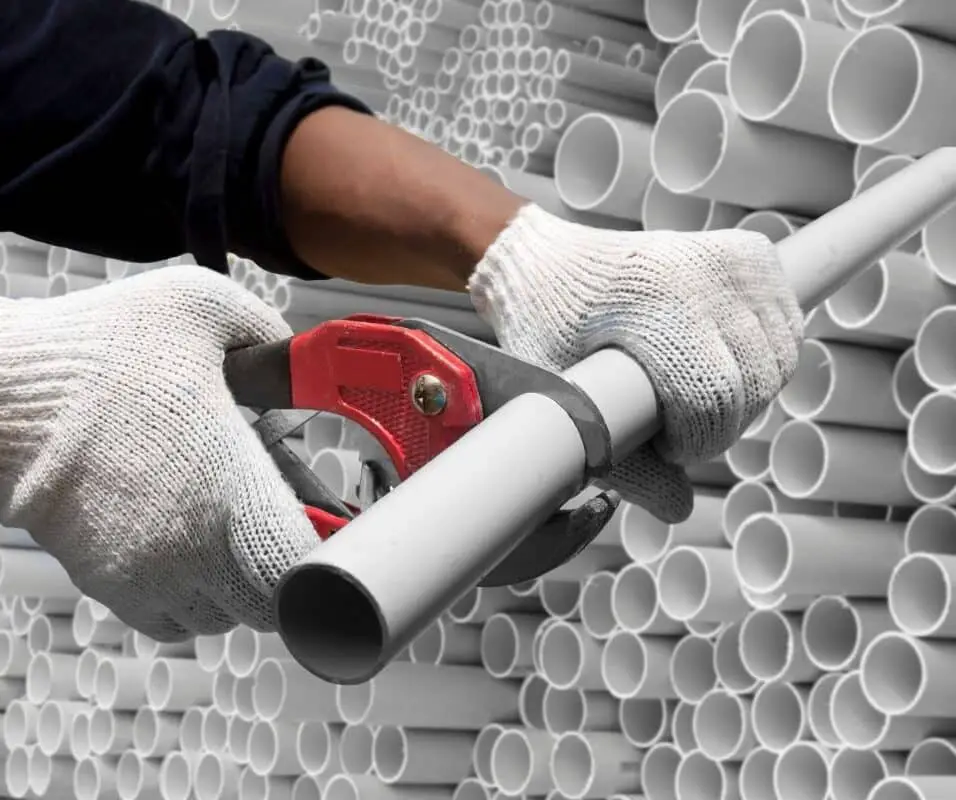What Are The Requirements To Be A Plumber
Introduction:
What Are The Requirements To Be A Plumber: Becoming a plumber requires a unique set of skills and qualifications to ensure competency in this specialized trade. Plumbers play a critical role in installing, repairing, and maintaining plumbing system, ensuring the safe and efficient flow of water and gas in residential, commercial, and industrial settings. This essay explores the requirements to become a plumber, including education, training, certifications, and key skills needed to excel in this profession.
People usually need to meet certain educational standards before they can become plumbers. In most places, you need at least a high school education or the equivalent. However, some places may have other requirements. It can be helpful to have a strong background in math, science, and technical topics, since plumbing requires measurements, calculations, and an understanding of how plumbing works.
In addition to going to school, people who want to become plumbers usually do specialized training or join apprenticeship programs. Under the guidance of experienced plumbers, these programs give students real-world practice and useful information. Apprenticeships usually last for a few years, and that’s when apprentices learn different plumbing methods, safety rules, and building codes. The skills they learn on the job are very useful, and they may also go to extra classes to better understand how plumbing systems and methods work.

What makes you a plumber?
Potable water supply plumbing must meet standards to ensure water quality and safety.
Education and Training
Plumbers often undergo formal education and training programs to acquire the necessary knowledge and skills. This can include completing vocational or trade school programs, community college courses, or apprenticeships. These programs provide instruction in plumbing systems, pipefitting, safety procedures, and relevant codes and regulations.
Practical Experience
Hands-on experience is crucial to becoming a plumber. Many aspiring plumbers participate in apprenticeship programs, working alongside experienced plumbers to gain practical skills and knowledge. This on-the-job training allows individuals to apply theoretical concepts in real-world scenarios and become proficient in plumbing techniques, installations, repairs, and maintenance.
Licensing and Certification
Different places have different licensing standards. In some places, plumbers need a license to work on their own, while in others, there may be different levels of registration or qualification. To get a license, you usually have to meet certain requirements for schooling and experience, pass an exam, and follow all local plumbing rules and codes. A plumber’s license shows that they are qualified and follow professional standards.
What are the three types of plumbing?
The Different Types of Plumbing. There are three different types of plumbing systems; sanitary drainage, stormwater drainage and potable water. Each of these systems have their own unique functions and purposes.
The three main types of plumbing systems are:
Potable Water Supply Plumbing
This type of plumbing system is responsible for delivering clean and safe drinking water to various fixtures and appliances within a building or structure. It involves the installation of pipes, valves, and fittings that transport water from the main water supply to faucets, showers, toilets, and other water outlets. Potable water supply plumbing must meet standards to ensure water quality and safety.
Drain-Waste-Vent (DWV) Plumbing
DWV plumbing handles the removal of wastewater and sewage from a building or structure. It consists of a network of pipes, traps, and vents that carry used water and waste materials away from fixtures and appliances, preventing odors and harmful gases from entering the living or working spaces. The DWV system ensures the proper disposal of wastewater and maintains a healthy and sanitary environment within the building.
Gas Plumbing
It is called gas plumbing to connect the lines, valves, fittings, and connections that bring natural gas or propane to things like stoves, furnaces, water heaters, and fireplaces. It Plumbers who work with gas need to know a lot about gas leaks and bad installations because they can be risky. The plumbing for gas-powered appliances must be put, kept up, and safety rules must be followed exactly as written for them to work safely and well.
Which course is best for plumber?
Many colleges provide diploma and PG diploma plumbing programs. Internet and offline options are available. Diploma and PG diploma courses are pursued by class 10 and 12 graduates. These two courses differ in eligibility criteria and duration.
There are several courses and training programs available that can provide a solid foundation for a career as a plumber. The best course for a plumber may depend on individual circumstances, including location, educational background, and career goals. Here are a few common options:
Vocational or Trade School Programs
Many vocational schools and trade schools offer specific plumbing programs. These programs provide comprehensive training in plumbing systems, pipefitting, plumbing codes, and safety procedures. They often include a combination of classroom instruction and hands-on practical training.
Apprenticeship Programs
Apprenticeships are highly regarded in the plumbing industry. These programs provide a combination of on-the-job training and classroom instruction. Apprentices work alongside experienced plumbers, gaining practical skills while earning a wage. Apprenticeships typically last several years and cover a wide range of plumbing topics and skills.
Community College Programs
Some community colleges offer plumbing programs that provide a broader education in addition to plumbing-specific training. These programs may include general education courses alongside plumbing courses, offering a more well-rounded educational experience.
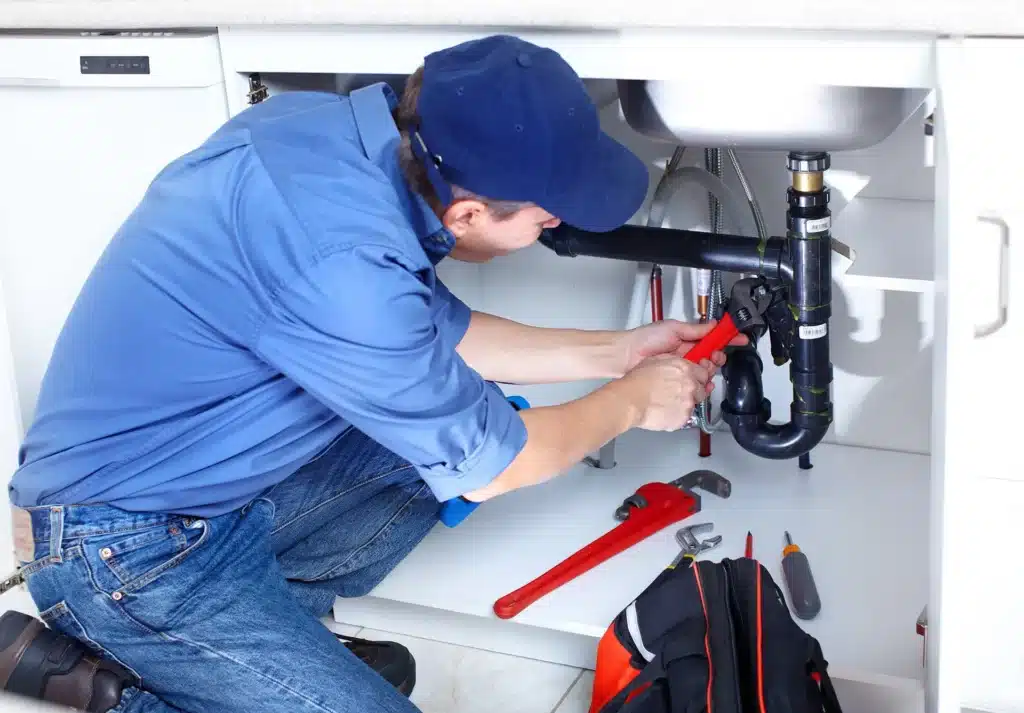
How do plumbers learn plumbing?
You’ll start out as a plumbing apprentice, working under experienced plumbers to learn about the industry. Once you stay in your apprenticeship for long enough (typically about four years), you can become a licensed plumber, or a journeyman.
Plumbers learn plumbing through a combination of education, training, and hands-on experience. The process of becoming a plumber typically involves the following steps:
Education
A lot of plumbers start out by finishing high school or getting a diploma that is similar. Even though it’s not required, having a strong educational background can help you understand technical ideas, math, and reading plans.
Vocational or Trade School
Some people who want to become plumbers choose to go to technical or trade schools that offer plumbing-specific programs. These classes have a set curriculum that includes things like plumbing codes, pipefitting, safety rules, and setting up and maintaining plumbing systems. To learn useful skills, students often get both classroom teaching and hands-on training.
Apprenticeship
Apprenticeship programs are widely recognized as a valuable path to becoming a plumber. Apprentices work under the guidance of experienced plumbers, learning the trade firsthand. These programs typically last several years, during which apprentices gain practical skills, knowledge, and experience while earning a wage. Apprenticeships offer a comprehensive learning experience that covers various aspects of plumbing, including installation, repair, and maintenance.
What is plumbing training?
The basic ideas and skills you need to build plumbing systems for homes, businesses, and workplaces will be taught to you in this class. Gas pipes, water heaters, and water supply systems are some of these systems.
Classes and hands-on work are both parts of becoming a plumber. These give people the knowledge, skills, and real-world experience they need to do the job. In the US, you can learn how to be a plumber at professional schools, community colleges, trade schools, and through education programs.
Plumbing school generally teaches a lot of different things, like how to set up, maintain, and fix plumbing systems. Plumbing rules and codes, pipe fitting, pipe materials, plumbing tools, drainage systems, water supply systems, and how to stay safe are all things that students learn. Plus, they learn how to read blueprints, understand plumbing sketches, and plan and do plumbing jobs the right way.
You learn both in the classroom and by doing things yourself as part of the training. As students learn about plumbing in the classroom, they look at the ideas, methods, and standards set by the company. They learn not only how to use plumbing tools and equipment, but also how to set up plumbing systems and fix issues.
Which instrument is used by plumber?
Pipe Wrench
The pipe wrench serves as a plumber’s largest wrench. Plumbers use these heavy tools to tighten and loosen nuts and fittings on pipework. They typically use two of these wrenches together—one to hold a pipe in place and the other to rotate the nut or fitting in the appropriate direction.
Plumbers use a variety of tools and instruments to perform their work efficiently. Some common instruments used by plumbers include:
Pipe Wrench
A pipe wrench is a sturdy, adjustable wrench with serrated jaws. It is used for gripping and turning pipes, fittings, and other plumbing components.
Plunger
Plumbers’ helpers, or plungers, are rubber suction cups with wooden or plastic handles. It creates pressure to unclog toilets, sinks, and drains.
Pipe Cutter
A pipe cutter cuts pipes precisely and cleanly. A sharp wheel or blade spins around the pipe, cutting cleanly when tightened.
Pipe Threader
Pipe threaders create threaded pipe connections. It is usually used in gas or water supply lines to fasten pipes.
Auger or Drain Snake
An auger, also known as a drain snake, is a flexible cable or coil with a corkscrew-like end. It is used to remove clogs from pipes and drains by either breaking up the blockage or retrieving it.
What are the requirements to become a plumber?
What you need to do to become a plumber may be different in each area and country. But there are some things that almost everyone who wants to be a plumber needs to do. In general, people need to finish high school or get a diploma that is similar. They might also need to go to trade school or an apprenticeship program to learn how to do plumbing by doing it themselves. In some places, plumbers need to get a license or certification, which usually means taking a written test and showing that they can do the job.
Different countries and regions may have different rules and licensing standards for people who want to become plumbers. But there are some general steps and skills that you usually need to get a job as a plumber. Here are the most important specs:
Education
A high school diploma or equivalent is typically required to begin a plumbing career. Some vocational schools or community colleges offer plumbing programs or courses that provide fundamental knowledge and skills in the field. These programs can range from a few months to a couple of years, depending on the level of education desired.
Apprenticeship
Many aspiring plumbers enter into apprenticeship programs to gain practical experience and on-the-job training. These programs are typically offered by trade associations, unions, or plumbing companies. Apprenticeships can last anywhere from 4 to 5 years and involve a combination of classroom instruction and hands-on training under the supervision of experienced plumbers.
Licensing and Certification
Depending on the jurisdiction, plumbers may be required to obtain a license or certification to work independently. Licensing requirements often include meeting specific education and experience criteria, passing an exam, and demonstrating knowledge of plumbing codes and regulations. Some regions may have different levels of licensure, such as journeyman or master plumber.
What skills are necessary to be a successful plumber?
Plumbers who are good at their jobs have a mix of professional skills, problem-solving skills, and people skills. Technical skills include being able to read plans and knowing how to install plumbing systems and pipes. As a general rule, plumbers should be able to work in tight areas and have good hand-eye coordination. To figure out what’s wrong, fix water issues, and figure out what to do, you need to be able to solve problems. You should also have good customer service and conversation skills so you can talk to customers, understand their needs, and give them good plumbing services.
An experienced plumber needs to have a number of skills in order to do their job well. Some of these skills are:
Technical Knowledge
Plumbers must have a solid understanding of plumbing systems, including pipe materials, fittings, valves, and fixtures. They need to know how to read and interpret blueprints and specifications to install and repair plumbing systems correctly.
Problem-Solving Abilities
Plumbing issues often require problem-solving skills. Plumbers must be able to diagnose problems, analyze the situation, and come up with effective solutions. They need to think critically and troubleshoot various plumbing challenges, such as leaks, blockages, or faulty fixtures.
Manual Dexterity
Plumbers work with their hands and must possess good manual dexterity. They handle various tools, fittings, and pipes, requiring precise movements and coordination. Manual dexterity is essential for assembling and disassembling plumbing components accurately.

Conclusion
Pursuing a career as a plumber requires meeting specific requirements and acquiring a diverse skill set. The educational prerequisites typically involve a high school diploma or equivalent, with a foundation in math and science being beneficial. However, the journey doesn’t end with formal education. Vocational training or apprenticeships are crucial for gaining practical experience and hands-on knowledge under the guidance of experienced plumbers. These programs offer valuable insights into plumbing techniques, safety practices, and local building codes.
Obtaining a license or certification is often a requirement for plumbers to practice independently. These credentials demonstrate a plumber’s competence and adherence to industry standards. Licensure typically involves passing a written exam and showcasing practical skills. Additionally, pursuing specialized certifications in areas such as gas fitting, pipe welding, or green plumbing can enhance a plumber’s expertise and career prospects.
While meeting the requirements is essential, developing key skills is equally important. Technical knowledge of plumbing systems, problem-solving abilities, manual dexterity, effective communication, and adaptability are all crucial attributes for a successful plumber. These skills enable plumbers to diagnose and address complex plumbing issues, collaborate with clients, and provide exceptional service.



